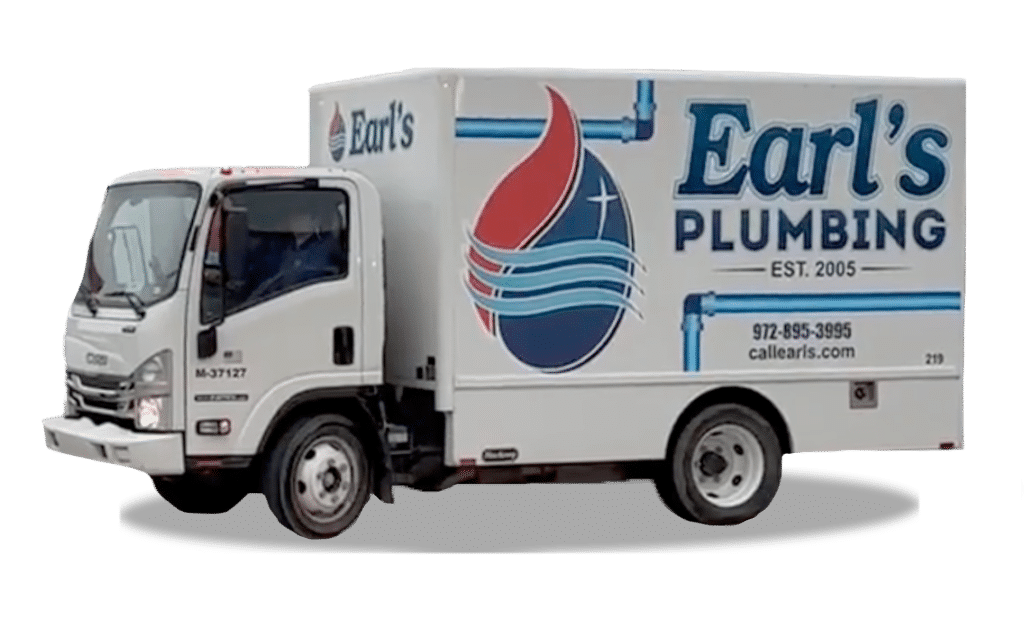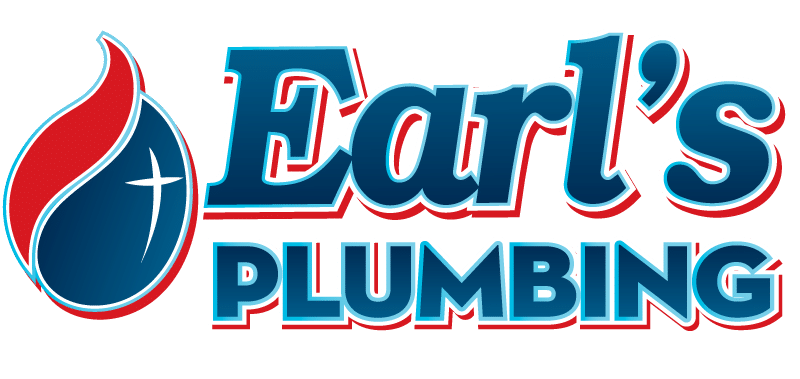Your First Call for Natural Gas Leak Repairs in Frisco, TX & Beyond
A suspected gas leak can be a little scary for some people. You smell an odor that you think might be gas. What do you do? Call Earl’s Plumbing—Frisco’s trusted gas leak detection and repair experts. Your safety is our top priority, and we’re always ready to help you feel secure while enjoying hot water, heated air, and other natural gas comforts in your home. Using advanced detection methods, we can accurately identify the source of gas leaks and fix them fast.
Earl’s Plumbing is a family-owned business with decades of gas plumbing experience. Using the latest technology and best practices, we can determine whether or not you have a leak, pinpoint its location, and make repairs quickly. Don’t take any chances with your family’s health and safety. Make Earl’s your first call for gas line repair services you can rely on.
Who Do I Call for a Gas Leak Near Me?
Plumbers are the licensed professionals that work on natural gas pipe repairs and installations. The gas utility company (Atmos & CoServ) does NOT work on anything past the gas meter. That means you can call the gas utility provider, but they are not going to do anything in your home or to the lines past where their gas meter measures for your bill.
Earl’s Plumbing can provide fast, thorough, and cost-effective solutions to gas leak issues to safely restore your home to working order. That said, if there is an emergency gas issue after 8 PM or before 6 AM, you should call the gas company. They will come to your house, turn off and lock your meter, and then tell you to call a licensed plumber as soon as possible.

Request a Gas Service Estimate Today
"*" indicates required fields
Answers to Your Frequently Asked Questions
Our team is ready to help you feel safe and secure in your home again. Don’t panic—simply call Earl’s Plumbing for fast, friendly, and thorough gas line services. In the meantime, browse our FAQs to learn more.
So, if the leak is on your property, they will turn the shut off valve off, lock the meter closed, and tell you to call a licensed plumber.
When this happens, we MUST obtain authorization from the utility company to get the meter unlocked, which requires permits and city inspections. This process can take multiple days, especially if you call on a Friday. It also involves additional administrative steps and processes, permit fees, and multiple trips to your home—all of which end up in a bigger hit to your wallet.
If you call our team first, we can instruct you on how to turn off the gas until we arrive. Then, we can test for and locate any leaks on your property. We fix the leak, turn the meter back on, relight your appliances, and send you on your way with much less time and expense involved.
However, some of our plumbers prefer the old-school method of spraying the various exposed connections with a testing solution that indicates there is a leak by the formation of bubbles. One is not better than the other and either system works if you are trained and experienced.
Is the leak behind a wall? Is it in a space-confined area where tools and equipment cannot reach? Is it below ground or on a pipe section that goes below ground (i.e., gas riser)?
A common gas leak repair is to replace the gas riser. This requires a considerable amount of excavation to access the connection point. The gas riser itself is fairly expensive, and there are many sizes and types. However, the different types and sizes along with the space they take up make it impossible to carry on our trucks.
Other things that could affect the final price are the type of system, the material or parts required, the size of the home, and/or how many gas fixtures that are involved.
Ultimately, a big contributor to the final price is whether or not the meter gets locked. There are significant logistical expenses involved on our end when the meter is locked by the gas utility provider and a city inspection is required.
For example, Plano is typically one of the more complicated cities to work with when it comes to permits, inspections, and other requirements. But when it comes to gas line leaks and repairs, they only require a permit and an inspection when we replace more than 6 feet of pipe.
In other cities in the area, regardless of how small or minimal the repair might be—even a simple loose connection—if the meter gets locked for any reason, a full gas pressure test with a permit and inspection are required.
Depending upon the situation, one or both might be used to test your system for leaks.
High-Pressure Test: This test requires us to access all of your appliances and shut off valves so that we can turn them off and test the shut off valve. This is the most common test, and it is required to pass an inspection and receive a green tag or meter release.
Low-Pressure Test: In this test, we assess past the gas shut off valve and into an appliance or fixture. This is used less often and usually when we think there is a gas leak, but it is not on the actual gas lines.
Leaks in newer homes are usually due to bad installation or inferior materials.
Based on our jobs and findings the most common areas for a gas leak are:
- Gas flex line connectors going to fixtures and appliances
- Gas risers coming from the underground yard line
- Gas meter connections that have rusted due to exposure
- Corrugated Stainless Steel Tubing (CSST) swivel nuts and connectors
- CSST manifolds
- Failed regulators
- Fitting junctions due to bad prep or poor installation standards
Did you know? Nail punctures to CSST piping are far more common than what you would think and usually correspond with a roofing replacement. Because CSST pipe is relatively thin, damage can be caused by even minor nail strikes that penetrate the roof decking when roofing work or shingle replacement is done. Compounded by the CSST’s flexibility, the pipe can often migrate too close to the roof decking, making it more susceptible to damage.
If you have CSST piping, you can help reduce potential damage and avoid these untimely and costly repairs by visibly inspecting your CSST lines. Trace the lines through the attic and make sure that they are not in contact with or close proximity to the roof deck. If this is identified, try to pull the flexible lines away from the decking and secure them in place.
Black Iron Pipe
This is the most common gas piping found in homes and businesses. This type of pipe is black in color and solid in structure. Black iron threaded pipe sections of different diameters and lengths are joined together with the appropriate black iron fittings. It is typically found inside the structure only and is NOT to be used below ground. It is roundly considered the strongest and most dependable piping system. However, it does require proper preparation with quality materials as well as proper installation to maintain its tight seal.
Corrugated Stainless Steel Tubing (aka CSST)
CSST is also a common product used in the area. It can be identified by its yellow color and snake-like flexibility. It is very similar to gas flex line connectors but comes in much longer lengths. It is usually used in conjunction with black iron pipe to a primary central point called the manifold. From there, the CSST pipe distributes gas to various areas throughout the structure.
Yellow Poly Pipe (underground)
This type of pipe is primarily used for underground gas lines. It is yellow in color and comes in long rolls of very thick-walled poly (plastic) pipe in various dimensions, which can be cut on-site. It is used for all underground gas lines, whether going from the meter to the structure or from the meter (or line) to the appliance (i.e., pool heater, outdoor kitchen, emergency generator, etc.).
The part of this line that is seen above ground is called the riser. The riser is an angled section of weather- and element-resistant coated pipe that leads from the underground poly line to the various required connections at the structure or the appliance connection.
Other Materials
There are some other code-approved gas piping products that can be used for remodels. Earl’s Plumbing typically uses a flexible but heavy-duty product called “GasTite” for our above-ground gas remodel work. We will also occasionally run into the rare copper tubing line that is still code-approved, though this is only seen in older homes in the historical areas.
Did you know? Gas regulators at the gas meter (and sometimes in various spots in the system itself) are actually designed to expel or burp out gas to equalize or balance pressure. It is not uncommon to have an occasional slight gas odor around the gas meter area or near a regulator. This odor is perfectly safe and often more pronounced on calm days, especially in between houses that are in close proximity or in attics and confined spaces.
See What Frisco is Saying About Our Gas Leak Services

